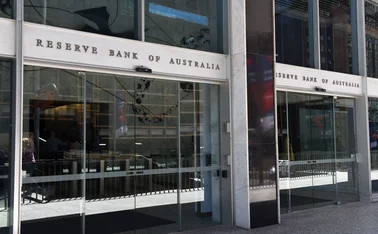
Commentators split on Bank justification for high inflation

Panellists at CentralBanking.com web seminar on Tuesday were split on whether the Bank of England was justified in its persistent overshooting of its 2% inflation target, echoing divisions that have emerged among the central bank's rate setters.
Brandon Davies, a member of the London School of Economics' Financial Markets Group, and Danny Gabay, a director at Fathom, a consultancy, both said the Bank's policy stance remains appropriate and consistent with its longer-term inflation objective.
For Davies there was no need to panic over consistently higher than target inflation because broad money growth remained anaemic. The 12-month broad money growth rate, released by the Bank on Tuesday morning, stood at –1.7%. Given this, the Monetary Policy Committee (MPC) was simply doing its job, as there was a risk of inflation undershooting the 2% target over a two-year horizon. "I [also] don't see the mechanism for inflation expectations to embed themselves in wages," Davies said. "We've got to get the money supply up," he added, noting that if he were on the MPC, he would, like Adam Posen, an external member, call for further quantitative easing.
Nor was it just a case of weak money growth, Gabay, who has worked as a Bank economist, said. "There isn't excess demand. There are some supply issues, and that's a complex argument for the Bank. Mervyn King has already made this argument – it is not about inflation today, but about looking ahead." King has stressed that the Bank's stance is the right one as long as price pressures do not infect wages, triggering a wage-price spiral.
Responsibility for growth
But Tim Young, formerly a trading manager in the Bank's foreign exchange division, saw a case that the central bank was overstepping its mandate – which, unlike, for example, the Federal Reserve, is to safeguard price stability alone. "I don't think it matters whether inflation is knocking onto wages. Where King is right is in talking about the real wage fall that has to take place. [But that could be achieved] by holding inflation to the target, and having nominal wages grow very slowly." This would be tough to swallow for growth, Gabay interjected. "But that is not their concern," said Young.
The argument that the Bank should ignore growth because it is not an explicit part of its mandate was equivalent to "hiding behind the rules," Davies countered. "You cannot divorce economics from politics, and if there is one objective that economists and politicians share, it should be making society better off." Pressed further on the issue, he added: "We are democracies and we have to respond to what people want… if the 2% target [is achieved] counter to economic growth, [people] will say this isn't working."
But while that might be true, the political onus was not on the Bank to assume this was the case and act out of turn, Young argued. "Back in 1997, a democratically elected government thought the best thing to do would be to have a tough central bank. If following through with that leads you to an excessive contraction in output and the public don't like it, then let there be a change in the mandate in an overt way, carried out by another democratically elected government."
Discretion and rules
Gabay and Davies both said that while framework and rules were important for rate-setters, it was important to allow a measure of discretion. "[Policymakers] need to have an objective, but I would be concerned about binding them with too many rules and framework," Davies said, adding that this could eventually mutate to a narrow obsession with satisfying the rules. Policymaking was not an exact science, Gabay added. "You need to have trust in a committee to have discretion and use it wisely."
While there was nothing wrong with policymakers using discretion in their methods, they should be hitting the mandated target, Young said. In addition, he pointed to the fact that the Bank's letter exchanges with the treasury – in January King wrote to the UK's chancellor for the fifth time in a year to explain why at 4% inflation was double the target – have so far been sparked exclusively by overshoots. In addition, the first of these letters was sent in April 2007, Young pointed out – too early for recourse to the Bank's argument that the effects of the sterling's depreciation have played a big part in inflation, given that the spate of depreciation started that year.
Nevertheless, all three were broadly agreed on the need for some discretion. Young pointed in particular to quantitative easing (QE) as an area in which it would become key. "There are always going to be new events that come along for which you don't have rules, [and] one interesting aspect on that front will be to see how [central banks] deal with the unwinding of QE."
Only users who have a paid subscription or are part of a corporate subscription are able to print or copy content.
To access these options, along with all other subscription benefits, please contact info@centralbanking.com or view our subscription options here: http://subscriptions.centralbanking.com/subscribe
You are currently unable to print this content. Please contact info@centralbanking.com to find out more.
You are currently unable to copy this content. Please contact info@centralbanking.com to find out more.
Copyright Infopro Digital Limited. All rights reserved.
As outlined in our terms and conditions, https://www.infopro-digital.com/terms-and-conditions/subscriptions/ (point 2.4), printing is limited to a single copy.
If you would like to purchase additional rights please email info@centralbanking.com
Copyright Infopro Digital Limited. All rights reserved.
You may share this content using our article tools. As outlined in our terms and conditions, https://www.infopro-digital.com/terms-and-conditions/subscriptions/ (clause 2.4), an Authorised User may only make one copy of the materials for their own personal use. You must also comply with the restrictions in clause 2.5.
If you would like to purchase additional rights please email info@centralbanking.com







